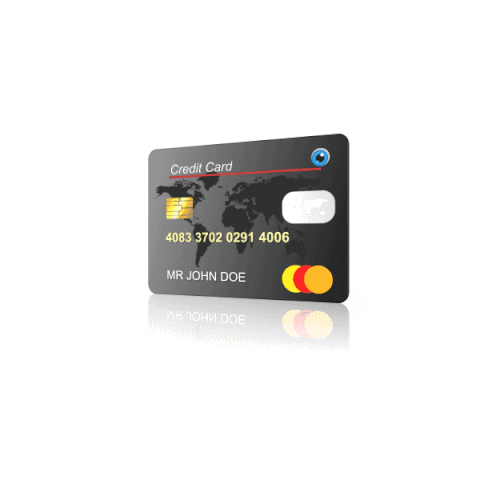Foundations of Credit: Getting Started
- John Savage, Author, CFHC
- Jan 11, 2020
- 4 min read
Updated: Dec 1, 2024

by John Savage, Author, NACCC Certified Financial Health Counselor™️
Credit it tool that is designed to be used as a means to get things you want and need, especially in case of emergency, travel and large purchase. Having credit cards is a luxury, not a right. If you have the discipline, knowledge, and responsible with how to manage your purchase, credit can be a very valuable tool to get virtually anything you want. With that said, let's get into how credit works.
Credit is something that lenders, banks, and other companies use to loan you money for purchases you may not have the funds out right to pay in full but is a necessary or desired purchase, such as buying a new, used, or pre-owned certified vehicle, the purchase of a new home or acquiring land to build your dream home, paying for your children's college tuition, paying for wedding expenses, a family vacation, emergency car repairs, or helping a friend or family member in need.
Regardless of your reason for using credit, it has become a very powerful tool in today's society and we all should be very accustom to the pros and cons of when and ho to utilize credit to maximize its benefits to us.
When you pay your bills on time and early, and pay off loans on time, when you keep your use of credit to a minimum, you are establishing good foundational habits for future opportunities, plus it lets creditors, banks, and other lenders know that you are a good credit risk. When this happens, you are like gold to them because they can trust you to not only pay them back, but pay them back on time, making the want to loan you more money at better rates and even issue you larger lines of credit over time. Plus, this also cause your credit scores to go up as well.
Understanding and having good credit is more than just being a good customer who pays your debts back as agreed and pays them on time, it about knowledge, strategy, and discipline. You may have heard that cash is king. Well, I am hear to tell you that is no longer true and has dissipated in the winds of time itself. As I am sure you are aware by now, America has been established on credit. That being the case, guess where that has trickled down to, the everyday consumer. So, if you do not understand credit and how to manage it responsibly, you may find yourself saving less money, accumulated more debt, and find yourself in a never ending cycle of lack and struggle which ultimately leads to frustration and broken dreams.

Let's going over the basics of how credit is established. Lenders, credit card issuers, banks, mortgage companies, utility companies, student loan servicers, hospitals, landlords and more all report items to what we call the big three credit bureaus, Experian, Equifax, and TransUnion. FICO is the original credit reporting agency. In fact, there are more than 30 different credit and consumer reporting agencies out there... Yes, that's right, more than 30 but most of have never even heard about them, what they report and how information gets reported to them. But for the sake of this topic, when will leave that for discussion on another date.
So, back to the big 3, Experian, Equifax, and TransUnion. Anytime you pay a bill, close an account, late on a bill, especially if it's delinquent by more than 30 days, that information will be reported on your credit report(s) as a derogatory remarks. These marks can cause your score to go down by more than 20, 30, even 50 or more points in some cases depending on the type of debt and the amount you owe among other factors.
This is why it is so important to be on top of your credit, your spending habits, and simply keeping track of your overall financial In-flow and Out-flow monthly. Here are some basic tips to help you do that, create envelope system where you assign a percentage or amount of money you will set aside each monthly for savings, shopping, entertainment, etc. This helps you stay within your means when spending and as your finances increase, you can adjust these numbers.
Create a Spending Plan. A Spending Plan can be as simple or as detailed as you want to make it down to the ratios of how much you spend, the areas where you spending the most money, to the time of year when you make your biggest purchase but if you don't have a plan or have a plan but don't follow it, it's not going to be any good to you at all. So, suggest what ever Spending Plan you come up with, keep it simple. I tell a lot people to keep it simple and don't complicate it. Do what works best for you and your family. That could be a spreadsheet for some and for others it could be a old school using a pen and notepad.
That ultimate goal is to help you keep track of and mange your finances responsibly. When this happens, your creditors and lenders with report your payments as on time and paid as agreed and they will be more than happy to lend to you at some of the best rest, with the best options, and at lower monthly payments than others who have a poor payment history and multiple derogatory marks on the credit file due to over spending, missed payments, or simply living beyond your means. Proverbs 27:23 says it another way, “Be diligent to know the state of thy flocks, look well to thy herds.”
If you know where your money is going at all times and you have given each dollar you have earned an assigned purpose, things will go well for you. Not that things will not come up in life, but when they do, you will be better prepared for the dreary days and the rain storms.




Comments